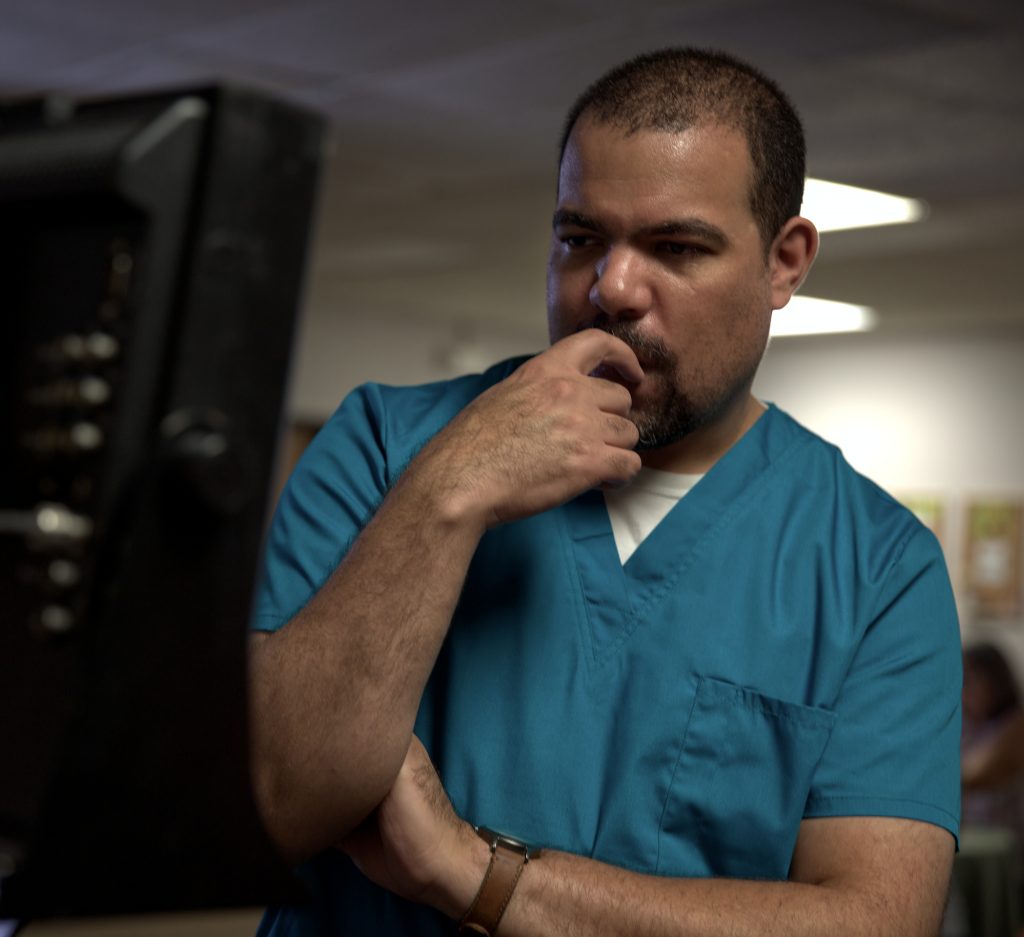The core of Tinhead‘s story first came into being in my first semester at Dodge College, furiously scribbled at the last minute to fulfill a screenwriting assignment. It was so weird that I assumed it was a throwaway, but from the very beginning there was something about the concept that people responded to very strongly.
Over the next year and a half, I was encouraged to continue nurturing and developing Tinhead until it became a complete story and the film I was most excited to make. I became fascinated by the character of Becca, who was simultaneously adult and child, dependent on her father’s dependence on her caregiving. What would such a life look like? and what if the best thing for her father is the one thing that she can’t live with?
We all grow old, and most of us will live to see the decline of our parents. In this sense, Tinhead explores a universal aspect of the human experience, and everyone can identify with Becca, Charlie, and the challenge of determining what’s best for their father. What sets Tinhead apart for me is the obsession with an idealized past, represented by the TV static, and the fantasy elements of the story that allowed me to visualize this obsession in a unique and interesting way. During preproduction I once described the film as Ozu’s Late Spring meets Tarkovsky’s Solaris, and I think that has borne out.

Stephen Inniss, March 2020